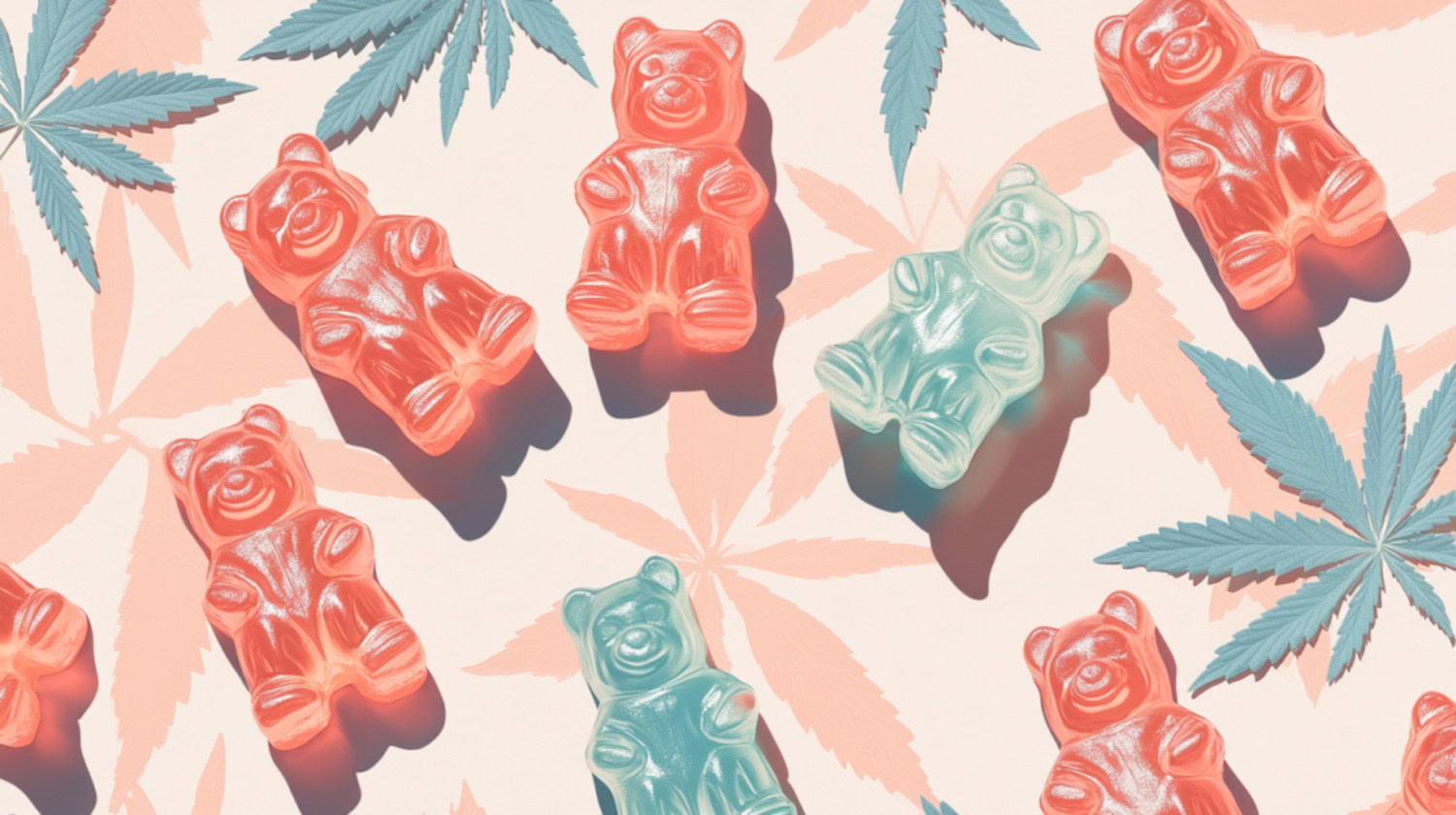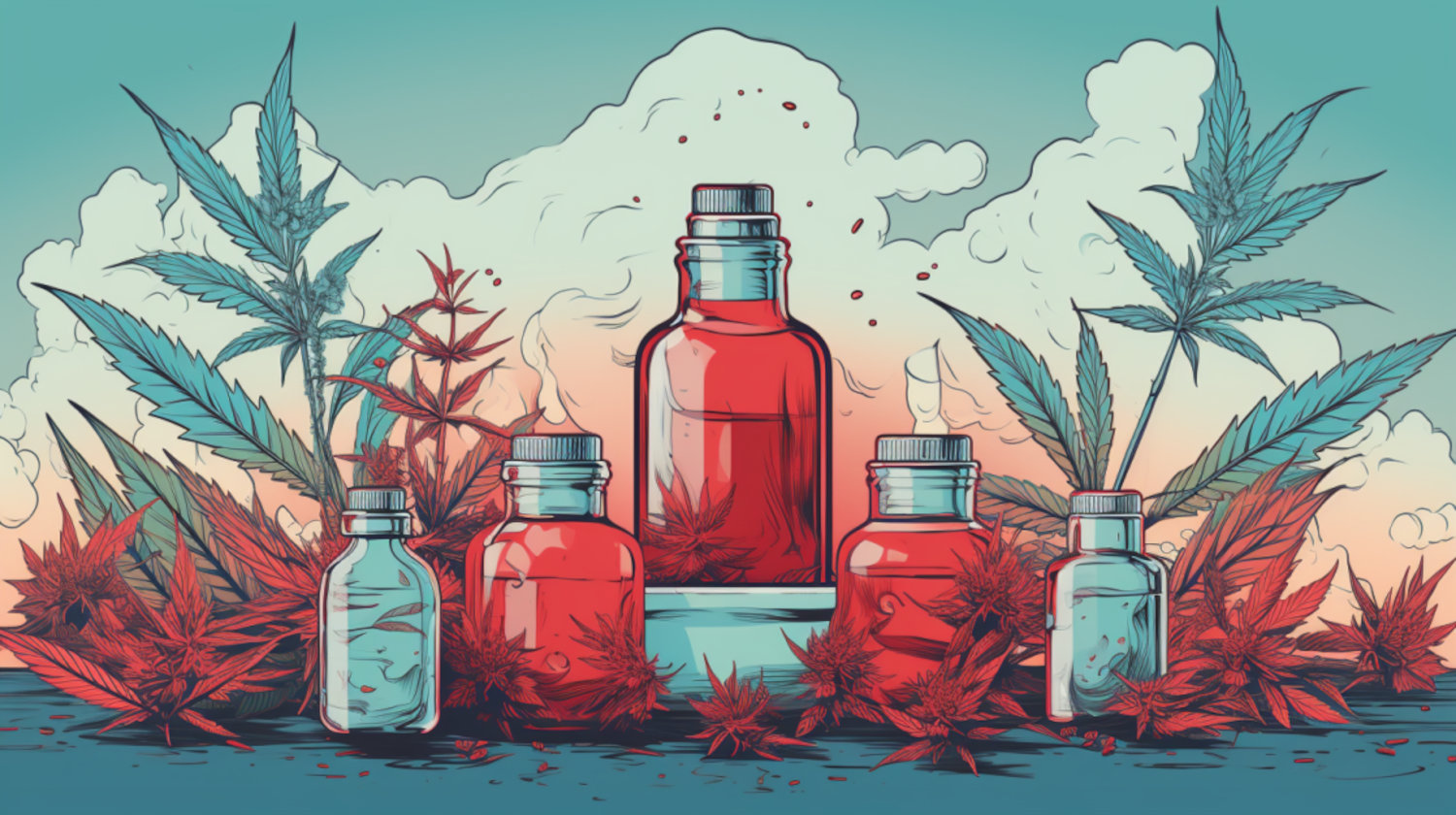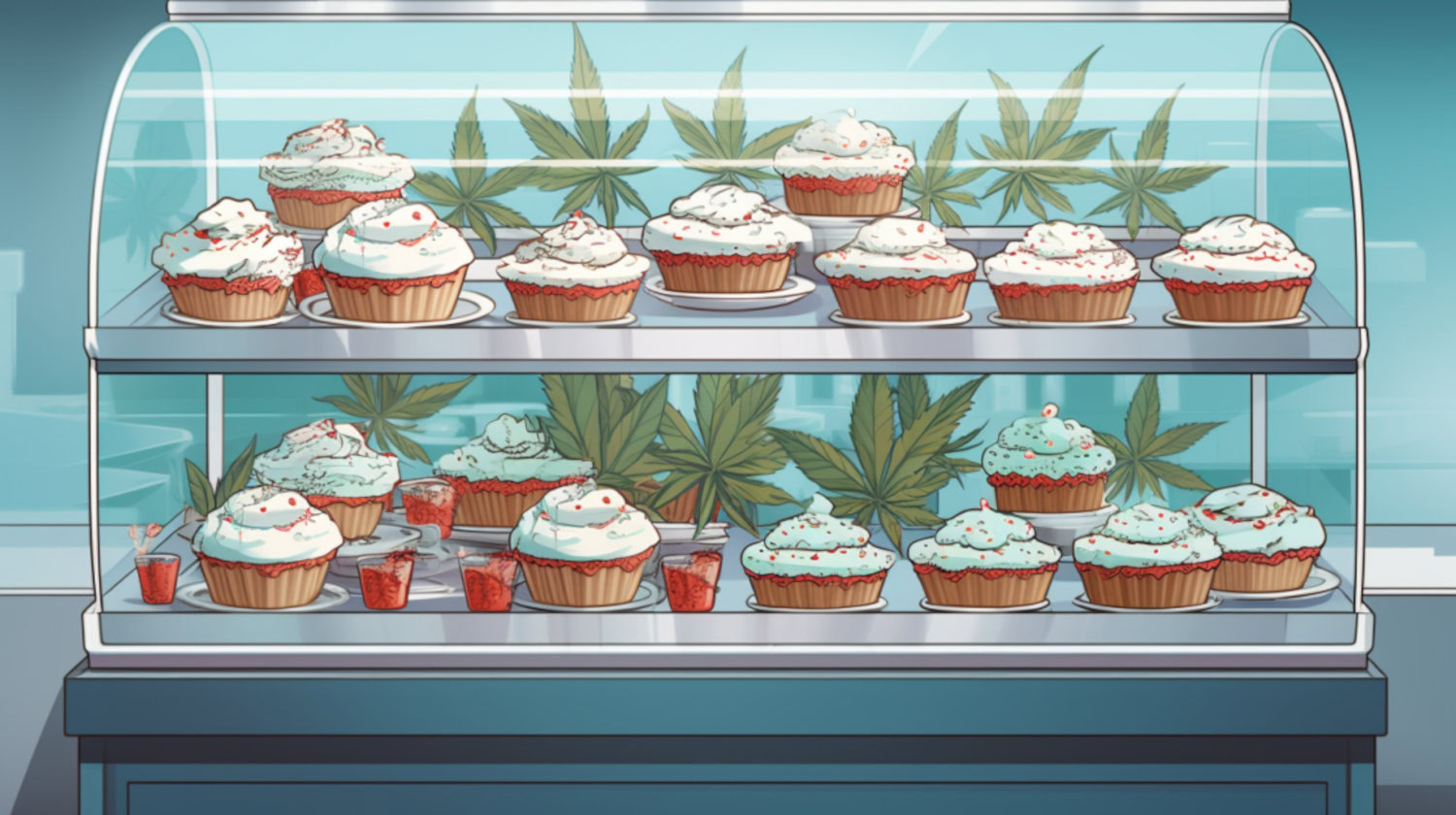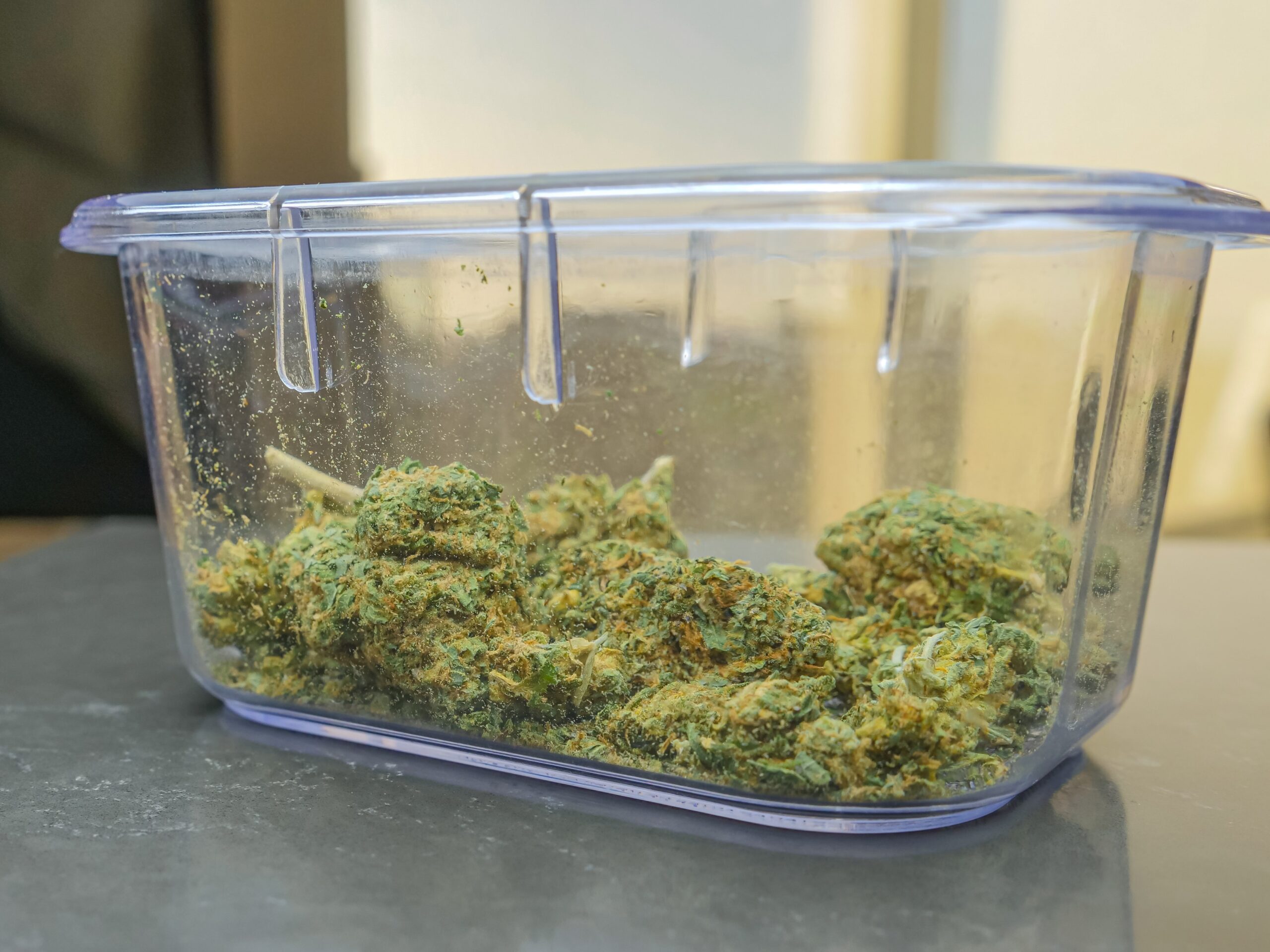In This Article
- Do Edibles Expire? How?
- Do Edible Gummies Expire?
- What Affects the Shelf Life of Edibles?
- Ingredients
- Storage temperature
- Humidity
- UV light and sunlight
- Packaging and oxygen
- Storing Edible Gummies to Keep Them Fresh
- Signs of Spoiled Edibles
- Signs that it’s possibly past peak flavor or potency:
- How to Store Edibles to Keep Them Fresh
- Are Expired Edibles Safe to Eat?
- Do Edibles Stop Working if They’re Old?
- What Should You Do With Expired Edibles?
- Edible Gummies FAQs
- How long do edible gummies last?
- Is it safe to eat expired gummies?
- Do edibles get stronger after they expire?
- Do edibles expire in the freezer?
- References
Key Takeaways About Edible Gummies Expiring
- Do edibles expire? Yes. Edibles can spoil or lose quality or potency over time.
- Are expired edibles safe to eat? Usually not recommended. If you notice mold, an unpleasant smell, or major changes in texture, toss them.
- Best storage steps: Keep them in a cool, dark location in an airtight container. Track or label their expiration date.
They're one of the most popular ways to use cannabis, but do edible gummies expire? Edibles do not last forever. Over time, an edible can lose its freshness, and the cannabinoid effects can become less predictable. Let’s look at what expired really means for gummies and other edibles, how to spot spoilage, and how to store edibles so they stay fresh longer.
Do Edibles Expire? How?
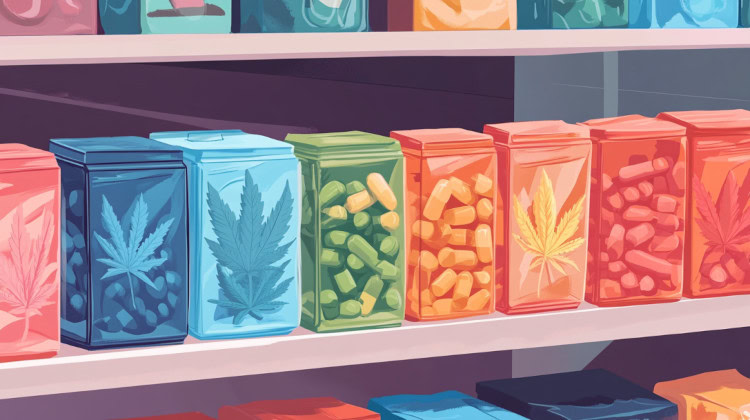
Yes, edibles expire, but if stored properly, they can remain fresh for an extended period. Sometimes an edible becomes unsafe because it spoils, as any food does. Other times, infused treats taste stale, change texture, or feel less potent.
Most of the time, edibles expire in one of two ways:
- Food spoilage and quality loss: ingredients can dry out, absorb moisture, grow mold, or develop off flavors over time.
- Cannabinoid degradation: cannabinoids can chemically change over time, especially when exposed to heat, light, and oxygen. THC can decline during storage. Over time, THC can break down into CBN, a different cannabinoid with different effects.1
Do Edible Gummies Expire?
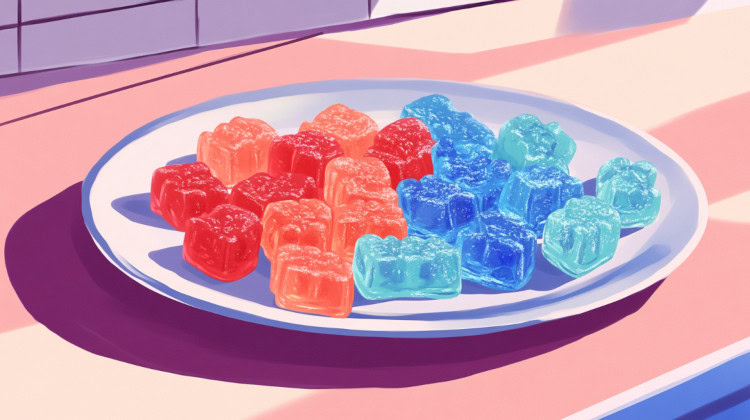
Yes, cannabis gummies expire. Gummies often last longer than baked goods because many commercial gummies are lower in moisture and designed for shelf stability. Still, they do not last forever.
As a practical rule, many cannabis gummies can last about 1 to 2 years when stored properly, but the real shelf life depends on ingredients, packaging, and storage conditions.
What Affects the Shelf Life of Edibles?
Shelf life mostly comes down to ingredients plus your storage environment. Heat, light, air, and humidity tend to shorten shelf life the fastest.
Ingredients
More perishable ingredients usually mean a shorter shelf life. Edibles made with real fruit, dairy, or baked components tend to spoil more quickly than shelf-stable gummies or hard candies.
Storage temperature
Cool and consistent is best. Heat speeds up texture changes and can accelerate cannabinoid degradation.
Humidity
High humidity can make gummies sticky and increase the risk of mold over time. Low humidity can dry them out. If your gummies turn into a hard brick or a sticky clump, humidity fluctuations are often to blame.
UV light and sunlight
Light exposure can degrade cannabinoids and terpenes over time. Many products use opaque packaging or recommend storing in a dark, cool location.
Packaging and oxygen
Airtight packaging slows down staleness and moisture swings. An open package allows air and humidity to change. A commercial weed container or light-blocking airtight container can help store gummies for weeks or months.
Storing Edible Gummies to Keep Them Fresh
These timeframes are guidelines, not guarantees. Check the label first, then use your senses before you eat anything questionable.
| Storage Options | ||||
| Gummy type | Pantry (cool, dark, sealed) | Fridge (sealed) | Freezer (sealed) | Notes |
| Commercial gummies (standard gelatin or pectin) | ~6 to 12 months (often longer if unopened) | ~9 to 18 months | ~12 to 24+ months | Texture may be affected by cold, but airtight storage helps. |
| “Natural” gummies (real fruit, fewer stabilizers) | ~3 to 6 months | ~6 to 12 months | ~9 to 18 months | Watch for odor, color shifts, and moisture changes. |
| Homemade gummies | ~1 to 2 weeks to ~1 month | ~2 to 4 weeks (varies) | ~2 to 3+ months | Recipe and preparation can affect shelf life |
| Sugar-free or soft-chew styles | ~3 to 9 months | ~6 to 12 months | ~9 to 18 months | Humidity can cause these to degrade |
You can freeze weed in air-tight containers, although it isn’t recommended. However, most edibles, tinctures, and topicals can be frozen for later use. Still, proper room-temperature storage in aluminum or UV-protected glass best preserves the original texture and potency.
Signs of Spoiled Edibles
If an edible looks or smells off, do not eat it.
Toss it if you notice:
- Visible mold.
- Strong off odor (musty, sour, rotten, chemical).
- Unusual wetness, slime, or seepage that is not normal for the product.
- Damaged packaging, especially leaks or swelling.
Signs that it’s possibly past peak flavor or potency:
- gummies that are very hard, very dry, or unusually sticky
- faded flavor or odd aftertaste
- discoloration that looks unusual for that product
- sugar crystallization on the surface
When in doubt, it’s best to throw it away.
How to Store Edibles to Keep Them Fresh
Cool, dark, dry, and airtight storage keeps edibles fresh and ready to eat.
Here are a few extra habits that make storage safer and keep edibles in better shape:
- Use a truly airtight and light-blocking container. This helps prevent drying, stickiness, and odor transfer.
- Transfer edibles to an airtight jar, but keep the original package with the label. You can place the whole pouch inside the airtight container, or cut out the label and tuck it into the jar.
- Choose child-resistant storage when needed. Keep edibles out of reach and clearly separated from non-infused treats.
- Note the expiration date. If the package has one, copy it onto the container so it doesn’t get lost.
- Label homemade gummies with the prep date so you can gauge their freshness based on your storage method.
- Freezer tips for long-term storage: Seal tightly, remove excess air, and avoid thawing and refreezing repeatedly to limit moisture issues and texture changes.
Are Expired Edibles Safe to Eat?
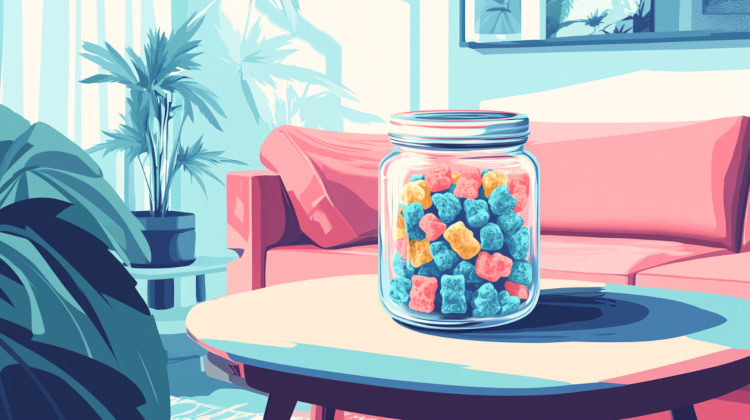
Most of the time, it’s better to skip expired gummies. They probably won’t cause a major problem, but old ingredients can taste off, upset your stomach, or feel weaker than expected.
If you are older, immunocompromised, pregnant, or generally cautious about food safety, it makes sense to be conservative.
Do Edibles Stop Working if They’re Old?
Old edibles usually still have some effect, but they can be less predictable. Over time, heat and light can degrade cannabinoids, potentially reducing potency or altering the edible's effects.
The shelf life of other edibles varies.
Baked goods are the most perishable (about 3 to 7 days at room temp, up to 2 weeks refrigerated, or up to 6 months frozen)
THC drinks typically remain potent for 6 to 12 months when unopened. Once opened, refrigerate and finish within 1 to 3 days (often best within 24 to 48 hours).
Gummies and hard candies are the most shelf-stable (usually 6 to 12 months, and some sealed products can last up to 2 years when stored in a cool, dark spot).
Chocolates generally last 6 to 12 months; white spots can appear, but they usually don’t affect THC potency.
What Should You Do With Expired Edibles?
You find a loose package of edibles in the back of your cupboard. If slightly past the expiration date but unopened and properly stored, you can decide whether to toss or take. If the package is open, check for mold or an off-odor. If the gummies seem stale, hard, or discolored, it's best to toss them.
Be sure to dispose of cannabis products safely to protect kids and pets.
Edible Gummies FAQs
How long do edible gummies last?
Most cannabis gummies last about 1 to 2 years when stored properly, but shelf life varies based on ingredients, packaging, and storage conditions.
Is it safe to eat expired gummies?
It is usually not recommended. Expired gummies may have changes in taste, texture, or potency, and they may cause stomach upset in some people.
Do edibles get stronger after they expire?
No. It is more common for THC to decline over time, eventually breaking down into CBN during prolonged storage.
Do edibles expire in the freezer?
Yes, but freezing can extend the shelf life if the food is sealed airtight. Focus on preventing moisture exposure and freezer burn.
References
- Zamengo L, Bettin C, Badocco D, Di Marco VB, Miolo G, Frison G. The role of time and storage conditions on the composition of hashish and marijuana samples: A four-year study. Forensic Science International. 2019;298:131-137. doi:https://doi.org/10.1016/j.forsciint.2019.02.058 ↩︎
The information in this article and any included images or charts are for educational purposes only. This information is neither a substitute for, nor does it replace, professional legal advice or medical advice, diagnosis, or treatment. If you have any concerns or questions about laws, regulations, or your health, you should always consult with an attorney, physician or other licensed professional.

